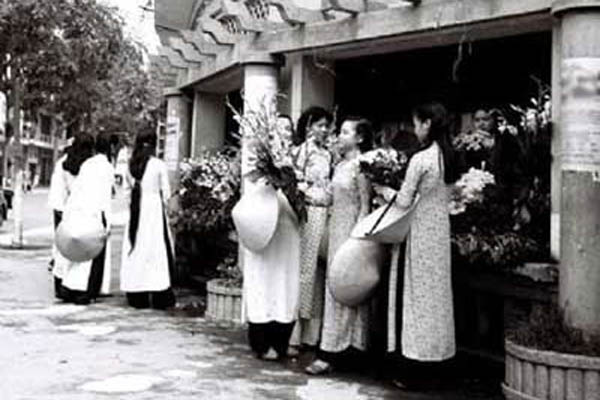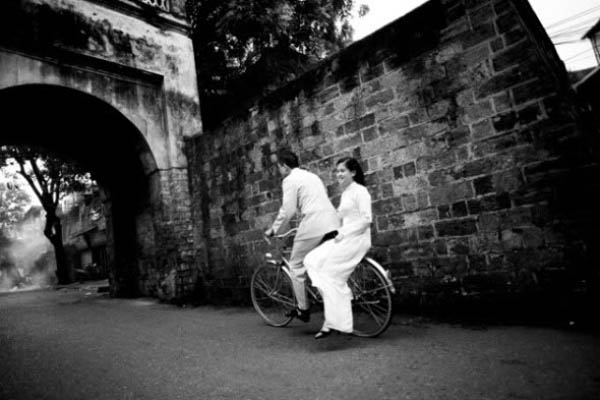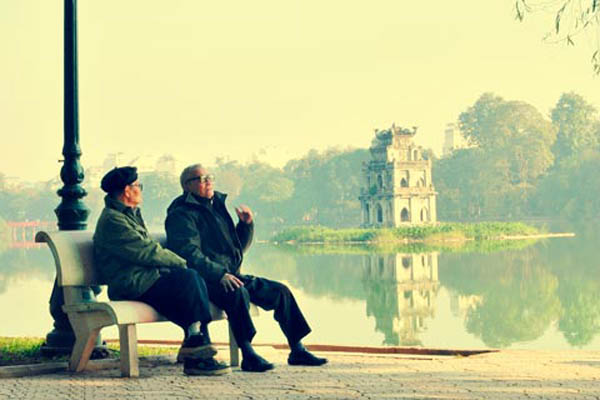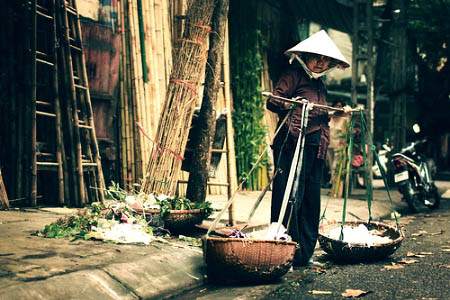"Chang thom cung the hoa nhai
Dau khong thanh lich cung nguoi Trang An"
(Without perfume, it’s still a jasmine flower
Without polish, he is still from Trang An)
These folk verses laud the cultural refinement of the people of the city of the Soaring Dragon (Thang Long), the old Hanoi.
According to a classical poem reflecting ancient beliefs it was the sacred breath of the River Lo (Red River) and Mount Tan that shaped the men of this city blessed by an exceptional geomantic position (Khi thieng Lo Tan duc nen nguoi).

The scholar king Le Thanh Tong (15th century) expressed a more rational view when he stressed a historical reality: The royal capital collects the finest flowers of the four tuyen (provinces)". He meant people coming from the provinces that surrounded the site: people Kinh Bac (in the north), a land abounding in literary talents and laureates of triennial examinations, a land famous for its folksongs and picturesque temples; from Hung Yen (in the east), a land redolent with memories of Tran Hung Dao’s victory over the Mongol invaders (13th century), of eminent Buddhist monks, of the doctors of humanities of Mo Trach; from Son Tay (xu doai: in the west), the site of Phong Chau, the cradle of the first Viet state, where the simplicity and solidity of men are reflected in local letters and in the architecture of communal houses; and from Son Nam in the south, where the To Lich river flows past villages with age-old handicrafts and cultural traditions.
Men born of the melting-pot of Trang An were reputed to be industrious, energetic, lovers of letter and flowers, generous with a touch of fancy, simple and courteous, knowing how to live well with other and avoid coarseness and the ridiculous. In streets and villages, neighbors were on friendly terms with each other. When absent from his home, a man could entrust its care to his neighbors.

In summer a household would place by its front door a terra- cottar of refreshing voi tea, together with a few bowls, so a passing traveller from the countryside or provinces could quench his thirst as he wished.
The spoken language of the people of Trang An set a standard for the whole country. Words were carefully chosen to void both obscurity and rudeness; pronunciation was exemplary. Communication aimed at simplicity and directness. One left rather embarrassed in the presence of people preening themselves on their wit and saying, by way of welcoming a guest. "Today the dragon (that you are) deigns to visit the shrimp (that I am); or "What propitious wind brings you to our modest home?"
Courtesy was the rule. When one offered a meal to someone one deemed to be one's superior (either because of age or social position), the word "xoi" was used instead of the more common "an" to mean "eat". An employer requesting a service or an object his employee was likely to accompany his demand with the phrase "toi xin" (I ask you, please). "Cho” was commonly used to mean "give", but when one gave something to someone one respected, the word "bieu" said, while "tang" was reserved for equals or inferiors.
When a gesture was made, appropriate care was observed. When something was handed to a visitor — a book, a cup of tea, it was done with both hands. When a schoolmaster came back from a visit at which a betel quid had been offered to him by his host, he put it on a plate before giving it to his wife. In the presence of a visitor, one’s behaviour should be correct, neither humble nor arrogant.

When about to welcome a visitor, the host put on a turban and long gown. He ordered tea to be prepared, or better still, infused some himself, rinsing the cups with boiling water and filling one for his guest to rinse his mouth before tasting the tea. The tea served must be neither too strong nor too weak. It was first poured into a big cup and left to decant before being served in tiny cups.
Correctness in the way one covered one’s body was observed, especially when one was in the street. Only people engaged in some back-breaking labor could show themselves stripped to the waist. One could wear patched, but not torn, clothes. If one's dress was of brocade, satin, or some other expensive material, one put on top of it a robe of ordinary gauze. The colored was reserved for old people. Maidens did not button up the neck of their gowns, leaving visible the tops of their breast pieces.
From generation to generation one strove to preserve the good manners of Trang An. Villagers migrating to the capital adopted them. In the countryside or in the provinces, people looked on visitors from Trang An as out of the ordinary, saying among themselves, "He is from the capital".



